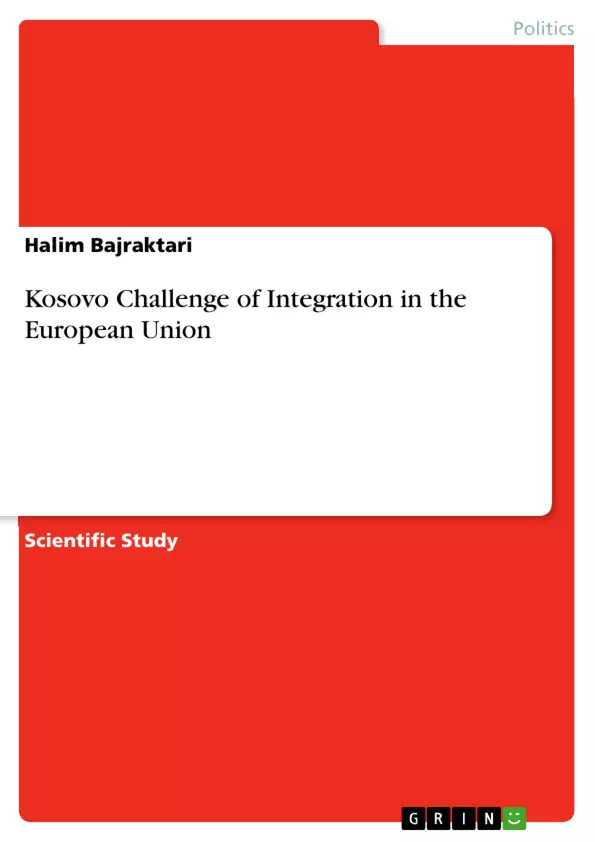Momentum political situation on the ground in Kosovo can be described as "position in a chess mat. De facto, Kosovo is an independent state in many ways, but de jury political prospects are dark integration. Facts on the ground give Kosovo the right to citizenship, and insist that the international community together to walk the roads that are part of the Euro-Atlantic integration. Development policies in Kosovo have been stuck arguing on developments in the region, will however, be good examples to follow in the region states state that these are in advance with these process integration. The challenges now and in this video will future Bowl are so light and slim to be achieved given that the region countries that are following the procedure as such we need to speed up the pace towards European processes with a commitment to great. Kosovo remains much work to do in economic and political sphere, the addition of capacity development in whole. Therefore new strategies should build political integration and long-term medium term if want to be part of the integration of the region think that there may conclude these processes only the brightest European dedication and work.
Inhaltsverzeichnis (Table of Contents)
- Challenges in institution building and transfer of powers to Kosovo institutions
- Political-Institutional Reform in Kosovo and meeting the criteria
Zielsetzung und Themenschwerpunkte (Objectives and Key Themes)
This text explores the challenges and progress of Kosovo's integration into the European Union, focusing on the development of its institutions and the process of transferring power from international bodies to Kosovo authorities.- Building and strengthening Kosovo's institutions
- Transferring power from international institutions to Kosovo authorities
- Meeting the standards for European integration
- The role of the EU and other international actors in Kosovo's development
- The importance of political and economic reforms for EU integration
Zusammenfassung der Kapitel (Chapter Summaries)
Challenges in institution building and transfer of powers to Kosovo institutions
This chapter examines the early stages of institution building in Kosovo following the war. It highlights the role of the UNMIK mission, the Kosovo Protection Corps (KPC), and the development of political institutions. The chapter emphasizes the significance of the "Standards for Kosovo" as a framework for EU integration and explores the implementation of these standards through the European Partnership Action Plan (EPAP).Political-Institutional Reform in Kosovo and meeting the criteria
This chapter delves into the political and institutional reforms implemented in Kosovo to meet the criteria for EU membership. It outlines the challenges of achieving stability, the need for international support, and the importance of comprehensive reforms encompassing legal, institutional, and democratic aspects. The chapter concludes by emphasizing the crucial role of economic and political reforms in laying the groundwork for Kosovo's integration into the EU.Schlüsselwörter (Keywords)
The main focus of this text is on Kosovo's integration into the European Union, particularly emphasizing the establishment and strengthening of Kosovo's institutions, the transfer of powers, and the implementation of the "Standards for Kosovo." Key topics include the role of the EU and other international actors, political and economic reforms, and the importance of democratic principles and rule of law in the context of EU membership.Frequently Asked Questions
What is the current status of Kosovo regarding EU integration?
Kosovo is described as being in a "chess match" position—de facto independent but facing dark political prospects for de jure integration into international bodies.
What are the "Standards for Kosovo"?
They are a set of criteria and benchmarks used as a framework to measure Kosovo's progress toward European integration and democratic stability.
What role does UNMIK play in Kosovo's development?
UNMIK was the UN mission responsible for the initial administration and the gradual transfer of powers to Kosovo's local institutions after the war.
What is the European Partnership Action Plan (EPAP)?
The EPAP is a strategic document used to implement the standards required for Kosovo to align with EU policies and institutional requirements.
What are the main challenges for Kosovo's institution building?
Key challenges include the transfer of executive powers from international actors, ensuring the rule of law, and implementing comprehensive political and economic reforms.
- Citar trabajo
- Halim Bajraktari (Autor), 2010, Kosovo Challenge of Integration in the European Union, Múnich, GRIN Verlag, https://www.grin.com/document/152668



